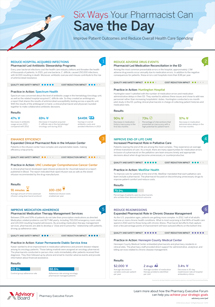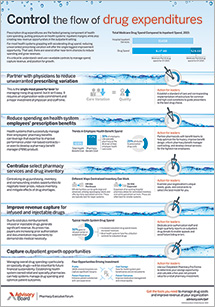Auto logout in seconds.
Continue LogoutGilead Sciences on Monday announced that it plans to sell generic versions of its blockbuster hepatitis C drugs Harvoni and Epclusa in the United States.
Learn 5 ways to control the flow of prescription drug expenditures
The announcement comes as President Trump and his administration, as well as members of the health care industry, are seeking to lower prescription drug costs.
Background: Gilead faces backlash over high treatment prices
Recently developed hepatitis C drugs can provide highly effective cures with minimal side effects. However, a course of treatment for some of those drugs can cost nearly $100,000.
For instance, the current list price of an eight-week treatment course of Harvoni is $63,000, while the current list price of a 12-week treatment course of Epclusa is $74,760. According to the Wall Street Journal, Gilead in the past has come under scrutiny for setting list prices of $1,000 a day or more for its hepatitis C drugs.
In response to the high cost of Gilead's hepatitis C drugs, insurers began limiting coverage of the treatments to the sickest patients, the Journal reports. In recent years, sales of Gilead's hepatitis C treatments have steadily dropped, falling to $19.14 million globally in 2015. In addition, Gilead saw U.S. revenue for Harvoni and Epclusa drop from $3.5 billion in the first half of 2017 to $972 million in the first half of 2018.
Gilead to offer lower-priced generic versions of Harvoni, Epclusa
Gilead announced that its newly created subsidiary Asegua Therapeutics will begin selling authorized generic versions of Harvoni and Epclusa in January 2019 at a list price of $24,000 for a standard course of treatment. The list price of the authorized generics is 68% lower than Epclusa's current list price and 62% lower than Harvoni's current list price, the Journal reports.
John Milligan, president and CEO of Gilead, said, "Launching these authorized generics is the best solution available to us today to quickly introduce a lower-priced alternative to our [hepatitis C] medications without significant disruption to the health care system and our business."
Milligan added that the "launch also will hopefully help increase transparency by more closely aligning [Gilead's] medications' list prices with their cost." He said, "Our country's complex drug supply chain means that a drug's list price does not always fully reflect the price paid by insurers—let alone a patient's out-of-pocket cost."
Implications
Gilead said the federal government and commercial insurers typically pay about $24,000 for the brand-name versions of Harvoni and Epclusa after rebates and discounts are taken into account. As a result, Gilead does not expect that launching the authorized generics will affect the company's revenues.
However, Gilead said the generics could save Medicare Part D beneficiaries up to $2,500 in out-of-pocket costs per treatment course. Gilead said state-managed Medicaid plans that do not have negotiated rebates for Harvoni and Epclusa also could see significant savings, "potentially opening up access to [the] medications to beneficiaries who were previously denied coverage."
Ronny Gal, an analyst at Sanford C. Bernstein & Co., said he expects recent backlash over drugs' high list prices from government officials and employers will prompt more drugmakers to take actions similar to Gilead's. Gal said Gilead's move is "a sign of the times. It's a snapshot of the U.S. system in the midst of change" (Baker, "Vitals," Axios, 9/25; Jagadeesh Babu, Reuters, 9/24; Bloomberg/Los Angeles Times, 9/24; Walker, Wall Street Journal, 9/24; Kacik, Modern Healthcare, 9/24; Gilead release, 9/24)
Learn 5 ways to control the flow of drug expenditures
Prescription drug expenditures are the fastest growing component of health care spending, putting pressure on health systems' inpatient margins while also creating new revenue opportunities in the outpatient setting. And while reducing unwarranted prescribing variation is the single biggest improvement opportunity, there are several other near-term chances to reduce spending and grow revenues.
Don't miss out on the latest Advisory Board insights
Create your free account to access 1 resource, including the latest research and webinars.
Want access without creating an account?
You have 1 free members-only resource remaining this month.
1 free members-only resources remaining
1 free members-only resources remaining
You've reached your limit of free insights
Become a member to access all of Advisory Board's resources, events, and experts
Never miss out on the latest innovative health care content tailored to you.
Benefits include:
You've reached your limit of free insights
Become a member to access all of Advisory Board's resources, events, and experts
Never miss out on the latest innovative health care content tailored to you.
Benefits include:
This content is available through your Curated Research partnership with Advisory Board. Click on ‘view this resource’ to read the full piece
Email ask@advisory.com to learn more
Click on ‘Become a Member’ to learn about the benefits of a Full-Access partnership with Advisory Board
Never miss out on the latest innovative health care content tailored to you.
Benefits Include:
This is for members only. Learn more.
Click on ‘Become a Member’ to learn about the benefits of a Full-Access partnership with Advisory Board
Never miss out on the latest innovative health care content tailored to you.


